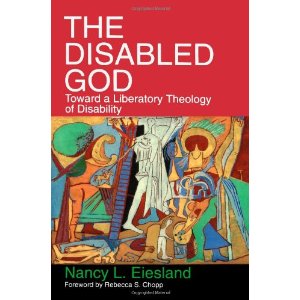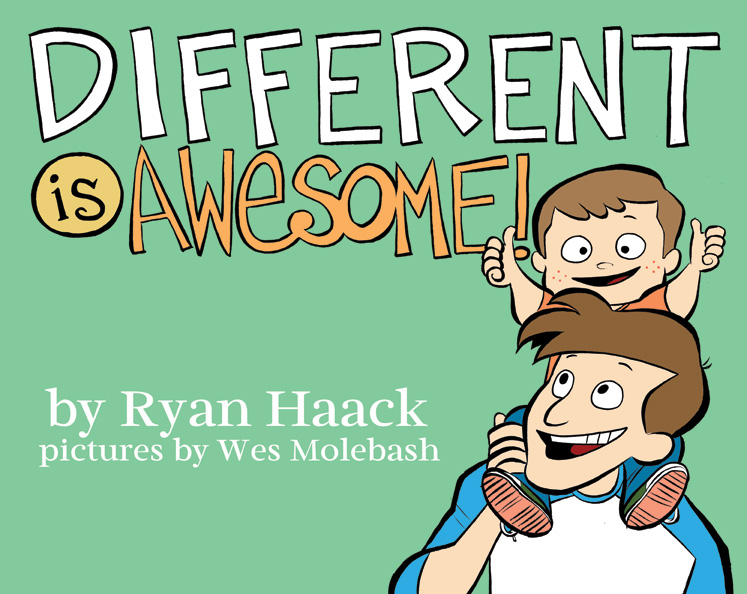We weren’t all shaking our heads.
Elizabeth Heideman’s recent piece on Salon.com about the Toyota and Microsoft Super Bowl ads, which featured two people with limb-differences, would have you believe that we – all disabled people and activists – were upset about them.
That couldn’t be further from the truth.
In fact, I believe her piece did more harm than good to an already nuanced conversation.
The fact is, differently-abled people aren’t represented very well in mainstream media. Some activists decry this injustice quite often. But then ads like these come out and those same people complain about them being “inspiration porn.” Frankly, it’s not a good look for our community. The other problem with Heideman’s piece specifically, is that the ads themselves don’t even meet the definition she herself puts forth in regards to IP. She says IP is anything that “sensationalizes people with disabilities.” To sensationalize something means to “present information about (something) in a way that provokes public interest and excitement, at the expense of accuracy.” There was nothing sensational about either advertisement. The Microsoft commercial is essentially a documentary about how technology has positively affected the little boy and his family. And the Amy Purdy ad…
Amy Purdy is amazing and the ad showcased her process and achievements well, even pairing her with the voice of Muhammad Ali, The Greatest of All Time! She was not presented as broken or needy; she was shown as powerful and able. Nothing about the commercial asked me or anyone to pity her in any way. In fact, that’s kind of the point here. It’s my opinion that something is only “inspiration porn” if it is perceived that way by the viewer. That is to say, if I see something and think to myself, “Boy, at least my life isn’t that bad,” then that’s on me, not whoever created the inspiring meme. That’s where education about the reality of having a disability comes in.
My friend Nat said it this way: “My understanding of inspiration porn is that the disabled person is seen as an object, with no agency. The Amy Purdy ad is not inspiration porn (although I think it’s important to be aware of the occurrence of it). Amy has agency. She chose to be in this ad. She is clearly ok with being seen as an inspiration, or she would not have done this commercial. I think it’s assumptive and ableist to assume a disabled person wouldn’t be an active participant as a decision maker; that Purdy was used somehow. Let’s stop the shaming. As if Amy Purdy isn’t being disabled “the right way”; as if she is just being a pawn in some ableist ‘porn’ by participating in this ad.”
Another issue here is that we need to remember that these ads were not only for people with all of their limbs. That seems obvious, but I think we forget it. Countless viewers affected by limb-difference saw these commercials and were inspired themselves. Ultimately, what I heard loud and clear, over and over from the limb-different community was joy and excitement.
“I feel like these commercials helped [my daughter], not hinder. She needs to see those things to know she is and will be just fine. And I need them as her mother.”
“When I look at Amy Purdy, I want to be just like her. That’s not IP, that’s finding a hero.”
“[My daughter was SO excited to see both of those commercials. She felt empowered and the folks at our party cheered.”
“My daughter had the HUGEST grin on her face during the commercial. She has an ‘I can do anything’ attitude and it’s awesome that she has inspirational people like Amy Purdy to look up to.”
These are just a few of the dozens of positive comments on my Facebook Page from people directly affected by limb-difference.
Heideman goes so far as to bring disability legislation and able-bodied people “shrugging off the importance of accessible parking” into the conversation. Trust me, I’m all about equal rights and inclusion for those with disabilities, but let’s keep this in perspective. These were ads for a car and a technology company. They were not created to fix every perceived slight against those with disabilities. To make them into that is to miss the forest for the trees.
Here’s the thing about inspiration: It can come from anywhere. I lost my father to suicide three months ago and recently someone told me I inspired them because I was able to get out of bed. They haven’t lost their father, but assumed it would be near impossible for me to accomplish that small task. Do you know what I didn’t do? I didn’t get angry. I didn’t shake my head. I didn’t berate them for pitying me based on an inaccurate assumption. Instead, I understood that they were trying to be nice. They were trying to compliment me.
These two ads did the same thing.
As someone with a limb-difference, there are a lot of things I could get angry about.
Inspiring others – even if I think that inspiration is, perhaps, silly – is not one of them.




















You win! I nearly posted that previous article but hesitated as it just didn’t sit right. Your post helps articulate my concern. Well written!
Thanks, Nathan!
Right on!
That woman’s article is ridiculous on so many levels that I can’t even wrap my mind around it! I wonder if she is herself disabled, or close to someone who is…. My daughter is a bilateral leg amputee like the people in the ads, and I was delighted to see the ads! She needs to know that she isn’t the only one out there, and that she can accomplish cool things if she tries! What can be wrong in letting her see that?
ATTABOY! Our goal as athletes is to be just that, athletes. Our goal is to be so kick ass awesome at what we do, our limb-difference will be the last thing they notice. But, our PURPOSE it to be used. To be used to encourage courage of others with similar circumstances, or… just circumstances. We really don’t have time to get involved in debate and such within or with”out” the limb-different community, we are more interested in the x’s and o’s or who makes the softest ball glove. This topic though, was in our opinion, a little close to home since we send coaches out into schools and other public venues to encourage and motivate others to “suck it up buttercup!” We disdain pity. If these commercial promoted that, then we’d have been the first to holler. Thank you Ryan Haack for having all of our backs by intelligently with humor and logic slam dunking our position on this inspirational porn nonsense. #dontneed2
Those who scream inspiration porn, are the same people who would rather PWD’s remain invisible. The disabled community is grossly under represented in the media and by Hollywood. If an ET were to watch almost any current film they would have the impression that earth had no PWD’S. As a US Thalidomide Survivor I personally enjoy seeing real people of all abilities in the media.
I could be completely off here but it seems like the goal is not to erase PWDs but to normalize the presence of them in media.
I remember those commercials and some things that are not created to be inspiration porn can eventually be reacted to by non-disabled people in an inspiration porn-y way. In this case it would be more about the reaction from viewers. I like when other disabled people see people like them normalized. But I don’t like when non disabled people watch it and only get the message “wow I’m so glad I’m not them!”